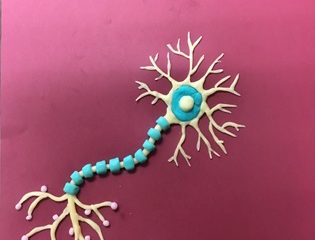Here is what I am reading today:
“The study reflects a major transition in the focus of neuroscience from disease to well being, says first author Richard Davidson, professor of psychology at University of Wisconsin-Madison. The brain is constantly changing in response to environmental factors, he says, and the article “reflects one of the first efforts to apply this conceptual framework to techniques to enhance qualities that we have not thought of as skills, like well-being. Modern neuroscience research leads to the inevitable conclusion that we can actually enhance well-being by training that induces neuroplastic changes in the brain.””
“Getting an autism diagnosis could be more difficult in 2013 when a revised diagnostic definition goes into effect. The proposed changes may affect the proportion of individuals who qualify for a diagnosis of autism spectrum disorder, according to a study by Yale Child Study Center researchers published in the April issue of the Journal of the American Ac”…
“We all have them — positive memories of personal events that are a delight to recall, and painful recollections that we would rather forget. A new study reveals that what we do with our emotional memories and how they affect us has a lot to do with our gender, personality and the methods we use (often without awareness) to regulate our feelings.”
“Notice that, even as you fixate on the screen in front of you, you can still shift your attention to different regions in your peripheries. For decades, cognitive scientists have conceptualized attention as akin to a shifting spotlight that “illuminates” regions it shines upon, or as a zoom lens, focusing on things so that we see them in finer detail. These metaphors are commonplace because they capture the intuition that attention illuminates or sharpens things, and thus, enhances our perception of them.”
“”The absence of the negative is not the same thing as the presence of the positive. We found that factors such as optimism, life satisfaction, and happiness are associated with reduced risk of CVD regardless of such factors as a person’s age, socioeconomic status, smoking status, or body weight,” said lead author Julia Boehm, research fellow in the Department of Society, Human Development, and Health at HSPH. “For example, the most optimistic individuals had an approximately 50% reduced risk of experiencing an initial cardiovascular event compared to their less optimistic peers,” she said.”




2 Comments
montalban · April 21, 2012 at 8:49 am
“Personality, Habits of Thought and Gender Influence How We Remember”
I briefly learned about suppression and reappraisal in psychology 202 last quarter, and the idea makes sense so to me it seems weird to have to test it so intensely. But of course they found something I would not have expected. Yes, it would make sense if people use suppression, which is a way of covering up negative emotions, their process of thinking will involve a more negative pathway and hence, result in a more negative outlook and mood; whereas if people utilize reappraisal, when recalling thoughts, which follows a more positive thinking pathway, they will have more positive emotions due to a more positive spin on their memory recall. The researchers finding were exactly this but showed a difference between men and women and how they normally think. They only found an association between positive thoughts and appraisal with men and negative memory associations with suppression in women. These findings further enhance the already sought out theories of women having more trouble with depression issues and men not so much; they are essentially wired to think/feel that way so it all makes sense now. It is hard to believe that our ways of thinking are so completely different because we essentially all start out as a single sex that is then determined to be male or female based on the hormones that are created/released in our earliest stages of life.
In addition, this article also reminded me a lot about the discussion I have last quarter about how one’s facial expressions can have an effect on one’s emotions about the current situation. For example, if you are smiling and look at pictures of people fighting you tend to have a more positive and happy outlook about the situation; whereas, if you are frowning and watching a sad movie, you are more likely to experience deeper sadness. It is strange to see that just our actions can affect our feelings and now with this article that just the way that our brains are wired can affect the way we think altogether.
alimgarrison · April 29, 2012 at 11:33 am
I found positive feelings and cardiovascular health to be very interesting. I am a person who believes heavily in the saying that life is what you make it, and from the looks of this article, this may prove beneficial to me in my older years, haha. It was interesting to me because I never actually realized that your outlook could affect your health.
Comments are closed.